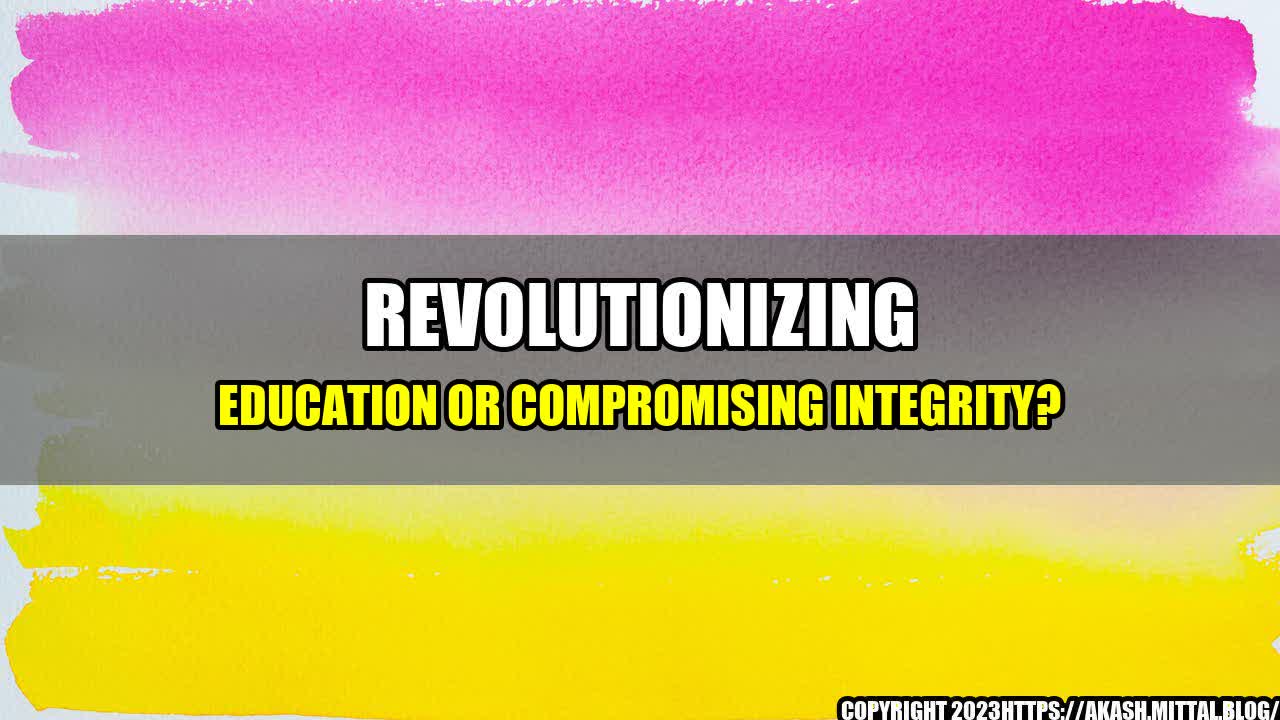When online learning became the new normal, I found myself in a dilemma. As a teacher, I couldn't be happier that my students were still able to attend classes, but as an academic, I had concerns regarding the authenticity of assessments.
One day, a student submitted an assignment that was too good to be true. Suspecting plagiarism, I ran a plagiarism check, only to find that the student had cheated. When I confronted the student, they admitted that they had used an online writing tool that could write essays for them in seconds.
This incident prompted me to delve deeper into the world of artificial intelligence and its impact on education. While AI promises to revolutionize education by making learning more accessible and personalized, it also raises questions about academic integrity, accountability, and authenticity.
The Promise of AI in Education
AI has the potential to transform education in many ways, including:
- Personalized learning: AI algorithms can analyze data from student performance and personalize learning experiences, making education more efficient and effective.
- Accessibility: AI-powered tools can make education accessible to learners with disabilities, and those in remote or underserved locations.
- Efficiency: AI can automate time-consuming administrative tasks and grading, allowing teachers to focus on teaching and mentoring.
- Innovation: AI can facilitate the development of new models of learning and teaching that were previously unimaginable.
Indeed, AI has already made significant strides in education. For example, Carnegie Mellon University developed an AI-powered tutoring system that can adapt to individual learners and provide personalized feedback. Duolingo, a language-learning app, uses AI to assess learners' fluency and adjust the difficulty level of the lessons accordingly.
The Dark Side of AI in Education
However, as with any disruptive technology, there are also concerns about the negative impact of AI on education. Some of the key concerns include:
- Authenticity: AI-powered tools can make it easy for students to cheat by generating essays or answers that are indistinguishable from human-produced work.
- Bias: AI algorithms are only as unbiased as the data they're trained on. If the data used to train the algorithms contains biases, such as racial or gender biases, these biases will be reflected in the AI's outputs.
- Privacy: AI-powered tools can collect vast amounts of student data, raising concerns about privacy and data security.
- Accountability: As AI-powered tools take on more responsibilities in education, who will be held accountable for their actions?
- Job loss: AI has the potential to automate many tasks traditionally performed by teachers, raising concerns about job loss and the deprofessionalization of teaching.
Addressing the Challenges
So, how can we reap the benefits of AI in education while addressing the challenges it presents?
1. Foster Academic Integrity
One of the key challenges of AI in education is maintaining academic integrity. To address this challenge, we need to educate students about the importance of academic integrity and how to avoid plagiarism and cheating. We also need to develop tools that can detect and prevent academic misconduct.
2. Ensure Bias-Free AI
To ensure that AI in education is unbiased, we need to ensure that the data used to train the algorithms is diverse and representative of all students. We also need to develop algorithms that are transparent and can be audited for biases.
3. Protect Student Privacy
To protect student privacy, we need to develop clear policies and guidelines for the collection, use, and storage of student data. We also need to ensure that AI-powered tools comply with data privacy regulations, such as GDPR and CCPA.
Conclusion
AI has the potential to revolutionize education, but it also presents significant challenges. To address these challenges, we need to foster academic integrity, ensure bias-free AI, and protect student privacy. By addressing these challenges, we can realize the full potential of AI in education.

Curated by Team Akash.Mittal.Blog
Share on Twitter Share on LinkedIn